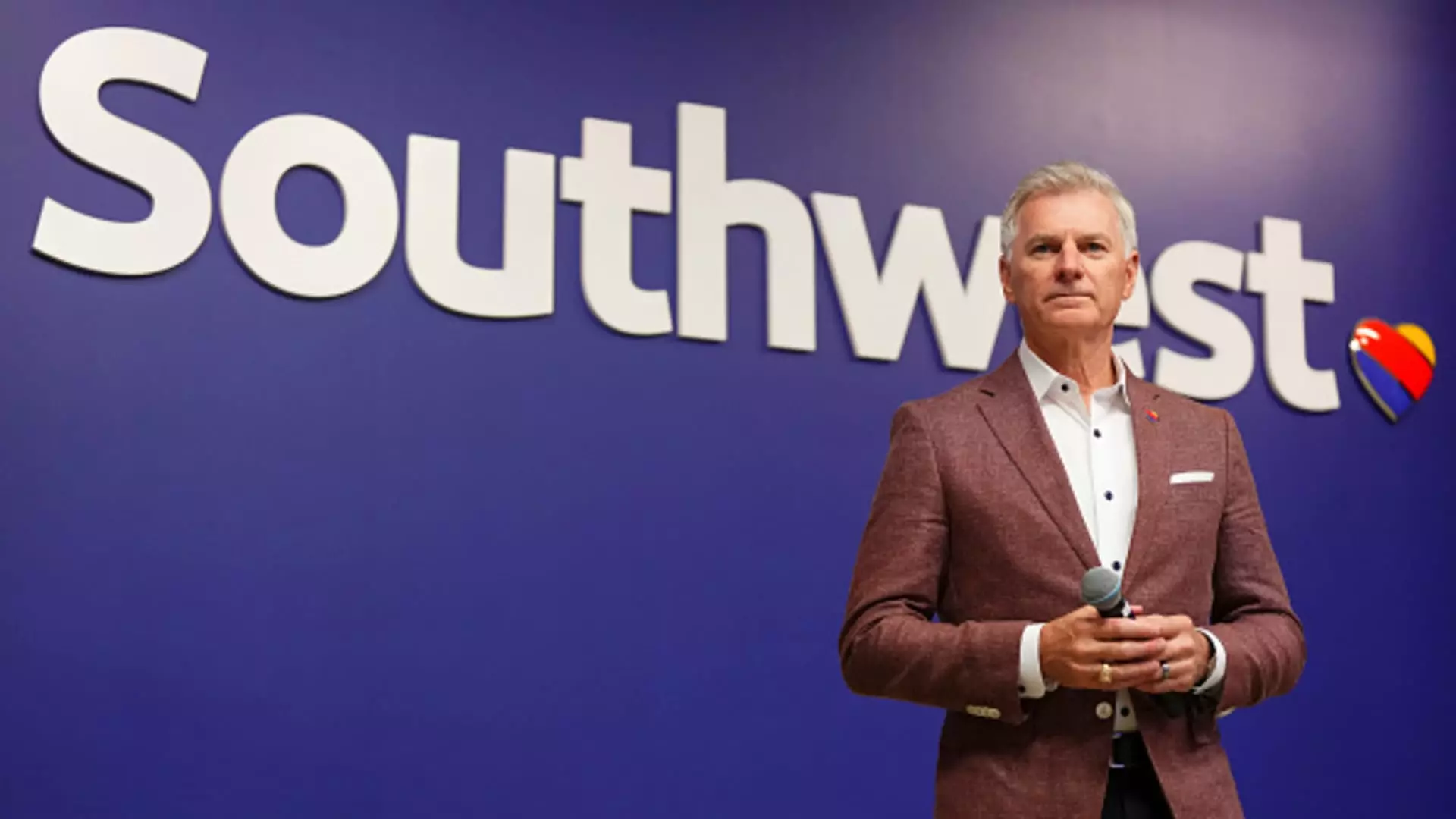In an era marked by heightened scrutiny and activism in corporate governance, the recent agreement between Southwest Airlines and Elliott Investment Management is a noteworthy example of the shift in the dynamics between management and shareholders. As the airline navigates through turbulent financial waters and mounting criticism regarding its operational strategies, the necessity for change has become more pronounced. The agreement, which staved off a potential proxy battle, saw the appointment of six new directors to the board, signaling a major shift in corporate oversight.
Elliott Investment Management, known for its activist stance towards corporate governance, had initially sought to install a series of changes, including the replacement of both Southwest’s CEO, Bob Jordan, and Executive Chairman, Gary Kelly. The deal struck instead has positioned Elliott as a considerable force behind the scenes while granting them significant influence over the airline’s governance structure. However, it raises questions about the potential implications for the airline’s strategic direction moving forward.
Management Stability vs. Corporate Governance
One of the most striking elements of this agreement is the retention of Bob Jordan as CEO, a decision that may seem paradoxical given the demand for radical leadership changes. This duality points to a delicate balance that Southwest must strike between maintaining continuity in leadership and responding to investor demands for enhanced performance. As the airline faces pressure to boost its profitability and adapt its business model, Jordan’s ability to maintain his role while accommodating the newcomers is pivotal.
Elliott’s insistence on board refreshment is indicative of a larger trend in corporate America, where shareholders are more willing to challenge existing management if they perceive a lack of proficiency in navigating financial challenges. This development reflects a growing recognition that achieving board diversity and fresh perspectives might be key to revitalizing corporate strategies. While Kelly’s earlier planned retirement in the spring of next year is expedient, the tactical board composition moving forward will be under close scrutiny.
The airline industry has been significantly impacted by changing consumer preferences, intensified competition, and rising operational costs. Southwest’s historical resistance to altering its business model, which prominently featured open seating and a single-class cabin, has come under fire from Elliott and echoed by market analysts. The idea of introducing more competitive products akin to those offered by legacy carriers like Delta emphasizes the need for Southwest to modernize its approach to revenue generation.
Despite the emerging changes, Southwest’s stock performance within the market tells a sobering story. With share prices rising by less than 1% this year compared to the robust 21% increase of the S&P 500, an urgent transformation of cash flow and profitability is necessary. Analysts are particularly focused on the airline’s commitment to efficiency, as they aim to trim unprofitable routes to manage costs while also instituting a $2.5 billion stock buyback program—bolstering investor confidence amid substantial strategic shifts.
The introduction of new board members, including five from Elliott’s slate and seasoned executive Pierre Breber, promises a substantial influence on the airline’s strategic direction. Interestingly, the board’s configuration, previously diminishing from 15 to 12 members, has now stabilized at 13. The ability of these new directors to integrate quickly and effectively will determine their impact on Southwest’s trajectory.
Moreover, while the enhancement of the board could potentially stimulate innovative thinking within the organization, the effectiveness of these changes largely hinges on collaboration between the existing management and the freshly minted directors. As noted by Kelly, there is a prevailing belief that the best days for Southwest Airlines lie ahead, supported by John Pike and Bobby Xu’s optimism regarding the renewed board. Still, for that potential to materialize, the airline will need to deliver tangible results in its upcoming financial reports.
Southwest Airlines finds itself at a decisive crossroads. With an evolving governance structure amidst ongoing financial pressures, the timeline for growth will largely depend on how effectively the airline can implement changes that resonate with both investors and customers. The next chapters of Southwest’s story are critical, and with eager eyes watching, action must translate into success.

